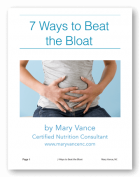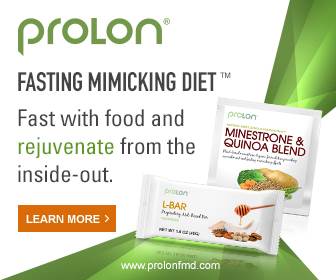Fat has been demonized for decades, but the tables are turning. We now know that refined carbohydrates and sugar make us fat, not dietary fat. This is why we got fatter as a nation during the fat phobia craze! Eating fat can help you lose weight (just look at the keto craze).
Why Do We Hate on Fat?
Everything that the medical industry has told you about fat is wrong. A recent study in the American Journal of Clinical Nutrition proves that saturated fat doesn’t cause heart disease. Profit-driven industries (I’m looking at you, American Heart Association) tell us that eating fat, especially the saturated kind, causes heart disease and that we should focus on a low fat/grain-based diet with minimal animal protein. You know: cereals, pastas, bagels, and grains that are low in fat and high in fiber. (A bagel has 2 grams of fiber, by the way). Switch out your butter for fake butter spreads free of saturated fat and high in processed ingredients and vegetable oils like soy and canola.
Where has this processed food high carb diet gotten us? Into an obesity epidemic with type 2 diabetes showing up in 8 year olds. But eating fat may not raise your cholesterol either (it depends on your genetics). Studies do show that eating cholesterol via diet does not raise it in the blood (in the majority of healthy people). Sugar, trans fats, processed foods, and too many grain-based food are the culprits. But cholesterol is a story for another time. Let’s talk fat.
Eat Fat, Lose Weight?
I have yet to encounter a client who comes to me for weight loss help and who isn’t fat phobic. We’ve been brainwashed to death that fat makes us fat and gives us heart disease. In naturally occurring fats, this is simply untrue (google Framingham Heart Study for more). Man-made trans fats and hydrogenated oils are the enemy here because they harden arteries and cause rigid cell walls so nutrients cannot enter and nourish the cells. I can see how it makes sense that eating fat would make you fat. But it just doesn’t work like that.
When you drink soda and eat an excess of sugar, corn syrup, cereals, pastas, bagels, refined flour foods and grains that quickly break down into sugar, your body uses what glucose it needs for energy, and the rest of this sugar is converted to triglycerides and stored as fat. This is one reason that eating a high carb/high sugar/high soda diet makes you fat: you’re taking in way more sugar than your body needs as fuel, so the rest is stored, raising your triglyceride levels and making you fat.
But when you eat real fat, like coconut oil, animal fat, olive oil, or avocados, for example, your body puts it to work, using it for brain health (your brain is 60-80% fat); for cellular health and cell communication between cells; for hormone and prostaglandin production; also for fuel. But it must be the right kind of fat, NOT the man made trans fats or the Wesson oil or shortening that comes in the big jug and is a combination of soy, corn, canola, or other “vegetable” oil.
Here is why: vegetable oils are highly unstable polyunsaturated fats that are very heat sensitive. Under heat processing (how vegetable oil is made), free radicals are formed. The end product is oxidized, and the free radicals cause arterial damage and heart disease, not to mention that these oils contain an excess of omega 6 fat, which contributes to inflammation and heart disease. Read more about the connection between inflammation and vegetable oils here.
To summarize, your body relies on fat to nourish your brain, provide raw materials for your hormones & cells, and to keep you feeling FULL. When you eat too much of the wrong kind of fat, such as processed man made fats, you may actually become ‘real fat’ deficient. Trans fats, which are vegetable fats that are chemically changed to behave like saturated fats so they stay solid at room temperature, are present in fake butter spreads to make them spreadable and increase the shelf life of packaged products.
Your body uses these man made fats as it would saturated fats: to make your cell walls permeable and to feed your brain and hormones, but because they are chemically processed, they don’t nourish the body as real fats do, and eating these types of fats make cell walls rigid and unable to absorb nutrients. Deficiencies develop. And what happens when you are deficient? You get cravings because your body recognizes you need something more.
So how do you get fat? From consuming nutrient empty foods, corn syrup, soda, excess sugar and carb heavy foods like bread, pasta, cereal, cookies, cake, soda, fruit juice. and bagels. These foods raise your blood sugar and insulin (which is a fat storage hormone) and contribute to inflammation in the body, which raises cortisol (another fat storage hormone). Now you’ve got inflammation, high insulin, high cortisol, and high triglycerides, and you’re overweight.
If you’re still skeptical, consider the studies: Numerous peoples thrive on a diet high in REAL fats. Studies on tribal cultures such as the Masai, who thrived on a diet rich in milk, meat, and blood, and Polynesian people, who use coconut as a staple of their diets, show that these people do not have the same markers for inflammation or heart disease as modern cultures consuming a lot of processed food rich in sugar and chemicals. Again, this depends somewhat on your genetic makeup: certain people and ethnicities handle higher fat diets better than others.
Back to weight loss: Eat fat, lose weight. That’s right. Include real fats in your diet to help you lose or maintain your weight. Fat provides satiety, meaning you won’t be hungry (sugar does the opposite), and coconut oil is actually shown to boost thyroid function and provide energy. Butter is healing to the digestive tract. These saturated fats nourish the body.
Buy unrefined oils such as olive oil and coconut oil in glass jars. Consume at least 1 tbsp of good fats per meal. Cut out the processed foods, the cereal, bagels, bread, pasta, and the corn syrup, sodas, and all those foods marked “low fat.” They are not whole foods.
Bottom line: eat real food. Eat real fat. Fat from meat and eggs and raw dairy (if you can tolerate dairy), fat from butter, olive oil, coconut oil, and avocados. How much? It depends on the person and if you have metabolic imbalance (hypothyroid, PCOS, insulin resistance) or autoimmune disease, for example.
Resources
Cholesterol Clarity
Eat Fat, Lose Fat by Dr. Mary Enig & Sally Fallon
Know Your Fats, by Dr Mary Enig
Fats That Heal Fats That Kill, by Udo Erasmus
In Defense of Butter
Which fats to use for cooking

Mary Vance is a Certified Nutrition Consultant and author specializing in digestive health. She combines a science-based approach with natural therapies to rebalance the body. In addition to her 1:1 coaching, she offers courses to help you heal your gut and improve your health. Mary lives in San Francisco and Lake Tahoe in Northern California. Read more about her coaching practice here and her background here.








Wow! this is good news. I am so glad that the fat issue has been sorted out. What you say here makes sense.
You guys rock. Thank you for this article! This is what I keep trying to convince my fat-phobic friends. This is beautifully written and I learned so much about something that I thought I knew already. Keep up the good work!
Interesting info you got here. I’m really glad I came across your blog.. learned something new today. Thanks!
I have seen some information about coconut oil giving improvement to those with Alzheimer’s disease. Do you have any insights on this?
Hi Mary,
check out the post I just wrote on coconut oil. I have seen some claims that it works therapeutically in the treatment of Alzheimer’s, mostly bc the brain relies so much on saturated fat, I would guess. Do some googling for more info. There is also mounting research on the benefits of amino acids like 5HTP and tyrosine for Alzheimer’s treatment. I’m working on an article about this that I’ll share soon.
I cook with canola oil, thought it was the best one, which other oil can I cook with besides coconut?
if you don’t like the coconut flavor, you can try refined coconut oil for high temp searing, which doesn’t have the coconutty taste. otherwise, i used to recommend red palm oil, but i fear it’s not produced sustainably. otherwise, tallow, butter, ghee. olive oil is fine for medium temp.
https://www.maryvancenc.com/2009/06/know-your-fats/
This is great information. Thank you for publishing this.